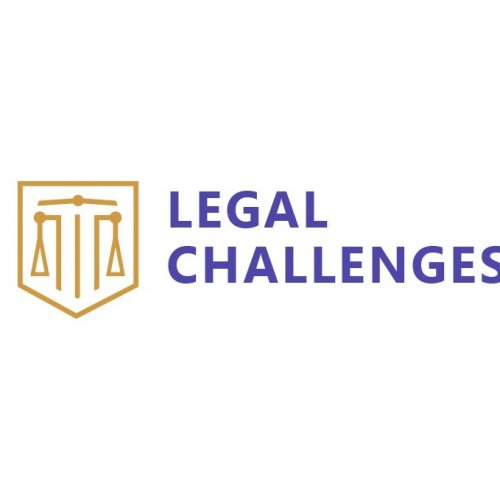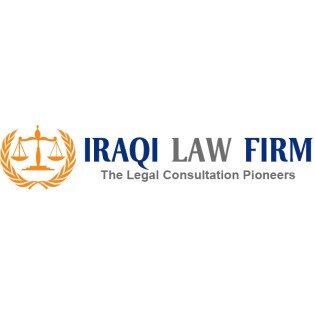Best New Business Formation Lawyers in Iraq
Share your needs with us, get contacted by law firms.
Free. Takes 2 min.
Or refine your search by selecting a city:
List of the best lawyers in Iraq
About New Business Formation Law in Iraq
New Business Formation in Iraq involves a complex interplay of various legal, economic, and bureaucratic elements. Following significant economic reforms aimed at revitalizing the economy, Iraq has been encouraging domestic and foreign investments. The hallmark of starting a new business in Iraq is understanding the local regulatory landscape, which governs incorporation, operation, and management of businesses. This includes various business structures such as limited liability companies, joint stock companies, and partnerships, each having distinct legal forms, requirements, and tax obligations.
Why You May Need a Lawyer
Seeking legal advice is crucial when forming a new business in Iraq due to various factors:
- Complex Regulations: Navigating the dense regulatory environment requires expertise to ensure compliance with local laws and avoid potential legal pitfalls.
- Documentation: Proper documentation and legal drafting for contracts, agreements, and incorporation papers are critical for your business’s success.
- Local Intelligence: Lawyers provide valuable local insights that can help mitigate risks related to cultural, political, and business practices unique to Iraq.
- Conflict Resolution: Proficiency in resolving or preventing disputes through legally sound strategies and advice.
- Taxation and Licensing: Assisting with understanding and fulfilling complex tax obligations and licensing requirements specific to different business types.
Local Laws Overview
Understanding the landscape of local laws is essential for successful business formation in Iraq:
- Companies Law No. 21 of 1997: The primary legislation governing business activities, including the formation, registration, and operation of companies.
- Investment Law No. 13 of 2006: Encourages investment by providing benefits and protections to investors, like tax exemptions and leases.
- Tax Regulations: Iraq has specific tax laws that businesses must comply with, including corporate tax, VAT, and other fiscal obligations.
- Labor Law: Iraqi Labor Law regulates employment, working conditions, and the resolution of labor disputes.
- Intellectual Property Rights: Protecting inventions, designs, and brands is essential under Iraq's intellectual property statutes.
Frequently Asked Questions
What types of business entities can be formed in Iraq?
You can form several types of business entities such as a limited liability company (LLC), joint stock company (JSC), sole proprietorship, or partnership.
What is the minimum capital requirement for starting a business?
Minimum capital requirements vary with the type of business entity. For an LLC, usually, a minimum of IQD 1,000,000 is required.
Do I need a local partner to start a business in Iraq?
Certain sectors require foreign investors to have a local partner, while others allow full foreign ownership depending on the regulations in force.
How long does it take to register a company?
The time frame typically ranges from 2 to 4 weeks, provided that all the required documents are in order.
What are the key documents needed for company registration?
Essential documents include the Articles of Association, company bylaws, identification documents of shareholders, and proof of capital deposit.
Are there any restrictions on foreign companies?
While foreign entities are encouraged, they may face restrictions in sensitive sectors such as oil and security services.
What is the process for obtaining a business license?
A business license is obtained post-registration through the relevant ministry or local government authority, dependent on the business activity.
How are businesses taxed in Iraq?
Businesses are subject to corporate tax at a standard rate, and compliance with VAT and other taxes is mandatory.
Is it necessary to hire Iraqis for my business?
Yes, the law mandates certain employment quotas to be filled by Iraqis, especially in large companies.
Can I dissolve my business, and what is the process?
Businesses can be dissolved voluntarily or involuntarily, following a legal process that includes settling liabilities and fulfilling formal closure procedures.
Additional Resources
Consider these resources for further assistance in forming a business in Iraq:
- National Investment Commission (NIC): Key organization for investment support and guidance.
- Iraqi Chamber of Commerce: Provides valuable networking and business opportunities.
- Commercial Attaches at Iraqi Embassies: Offer advice and facilitate business operations between foreign entrepreneurs and Iraq.
- Ministry of Trade: Offers insights and updates on trade and business legislation.
Next Steps
If you require legal assistance in new business formation, consider the following steps:
- Consult a Qualified Lawyer: Engage with a lawyer who specializes in Iraqi business law to gain insights and legal guidance.
- Prepare Documentation: Ensure all necessary documents are ready as advised by your legal counsel for a smooth registration process.
- Network with Local Contacts: Reach out to local business contacts or advisors who can provide additional support.
- Regularly Review Legal Updates: Stay informed about any changes in laws that could impact your business through reliable law professionals or platforms.
Lawzana helps you find the best lawyers and law firms in Iraq through a curated and pre-screened list of qualified legal professionals. Our platform offers rankings and detailed profiles of attorneys and law firms, allowing you to compare based on practice areas, including New Business Formation, experience, and client feedback.
Each profile includes a description of the firm's areas of practice, client reviews, team members and partners, year of establishment, spoken languages, office locations, contact information, social media presence, and any published articles or resources. Most firms on our platform speak English and are experienced in both local and international legal matters.
Get a quote from top-rated law firms in Iraq — quickly, securely, and without unnecessary hassle.
Disclaimer:
The information provided on this page is for general informational purposes only and does not constitute legal advice. While we strive to ensure the accuracy and relevance of the content, legal information may change over time, and interpretations of the law can vary. You should always consult with a qualified legal professional for advice specific to your situation.
We disclaim all liability for actions taken or not taken based on the content of this page. If you believe any information is incorrect or outdated, please contact us, and we will review and update it where appropriate.
Browse new business formation law firms by city in Iraq
Refine your search by selecting a city.

















